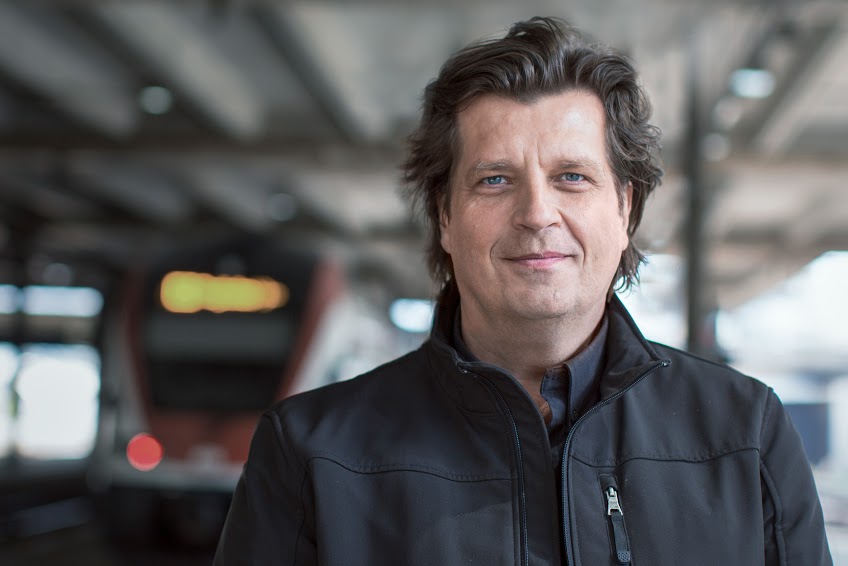As he completes a two-year tenure as visiting international scholar with the Department of Family Medicine’s Mixed Methods Program (MMP), Manfred Max Bergman, Ph.D. is envisioning a future where researchers and policymakers work in partnership with communities and the private sector to address societal challenges at the local and regional levels.
As an academic, he emphasizes, “You can no longer raise research money and publish articles. You also have to be part of a functional community.”
A keen observer of community-based sustainability efforts, Bergman, who is an associate member and adjunct professor of the MMP, has advocated for a paradigm shift in the academic approach in learning about and presenting solutions for societal challenges, as wide-ranging as community development, health care and food access, resource recycling, and new transportation technology. In addition to his work with the University of Michigan, Bergman also works as full professor and chair of Social Research and Methodology at the University of Basel (UNIBAS) in Switzerland.
He frequently urges his fellow scholars to uplift and amplify voices and efforts emerging from the very communities affected by these societal challenges.
"Amazing creativity and innovations are taking place outside of academia and politics,” he said.
Bergman points to Rust Belt cities like Detroit and Pittsburgh to illustrate his point through research-informed case studies exploring positive, real-world examples of sustainability transitions that bring together diverse stakeholders.
His case study of Detroit’s Eastern Market, conducted during his tenure at the MMP, was recently published in the journal Sustainability. Written with fellow MMP visiting scholar Zinette Bergman, Ph.D. -- a senior researcher at UNIBAS also focused on sustainability -- the duo highlighted the important role that local businesses can play in creating a shared economic, social and environmental future for the communities they serve.
“You don’t have to create ‘X’ billions in government budgets to do something to create change,” he said.
In fact, one approach he and Zinette Bergman have advanced is the use of engaging video content documenting sustainability efforts in Rust Belt communities. They believe that this approach is more inviting and accessible for people outside of academia, who may not engage with the sustainability literature in a meaningful way.
Their approach to video content is one where local communities, and the solutions they have created, take pride of place. They hope that this people-centric approach will both energize individuals keen to contribute to a more sustainable future and those who may be more skeptical. It may even inspire researchers to think more creatively about researching sustainability solutions. A recently completed video showcased the community of Pittsburgh, in collaboration with the local film blogger, Dean Bog. View the video here.
Bergman’s time with the Department of Family Medicine’s MMP built on years of collaboration with the program’s founders Professor Mike Fetters, M.D., MPH, MA, and Adjunct Professor John Creswell, Ph.D., of the Department of Family Medicine, who is also a senior research scientist with MMP. Bergman’s role as a visiting scholar has been marked by a dynamic exchange of ideas among faculty at the University — and contributed towards the development of a tool kit for organizations interested in partnering with local communities to enhance their sustainability efforts.
Assistant Professor Justine Wu, MD, co-director of the MMP, is pleased that Bergman is joining the program as an adjunct professor. Wu co-directs MMP with Assistant Professor Melissa DeJonckheere, Ph.D.
“We are excited about Dr. Bergman working more closely with the MMP on innovative cross-sector mixed methods projects, and in particular, look forward to the opportunity for more international collaborations with him and his network of colleagues around the world,” she said.
Bergman remarked that there are few universities that afford better opportunities for empirical research like this than at Michigan.
“The University of Michigan is one of the best places to conduct social science. It’s a fantastic place for an empirical researcher to explore new ways to do research and to co-create innovative solutions with communities,” he said.
Bergman emphasized that his ongoing collaboration with the MMP is having a transformative impact on his work bridging the gap between methodological research, social science and community change — and is driving a renewed desire to mentor students in this hybrid approach.
“Sometimes you need to get people out of books and show them how to do something with that knowledge,” Bergman said. “We see the terrible consequences in neglecting the local. I hope to use our knowledge and skills to make a more significant contribution to individuals and communities that makes sense to them. And I hope that this will filter back into conducting better research.”
About Manfred Max Bergman, Ph.D.
In addition to his work as full professor and chair of Social Research and Methodology at the University of Basel, Manfred Max Bergman, Ph.D. serves as a research councilor of the Swiss National Science Foundation and is a member of the Uganda National Academy of Sciences and the Sustainable Development Solutions Network (SDSN), a global initiative for the United Nations. He chairs the World Sustainability Forum and the Basel Sustainability Forum.
Bergman studied at the Universities of California (BA), Geneva (MA) and Cambridge (PhD). Previous academic affiliations include the Universities of Cambridge, Florence (European University Institute), Geneva, Loyola Chicago, Singapore (NUS), Notre Dame, Oxford, Stellenbosch, St. Gallen, the Witwatersrand, and Zurich.
About the Mixed Methods Program
The Mixed Methods Program at the University of Michigan’s Department of Family Medicine is designed to equip researchers with the knowledge, skills and tools necessary to effectively integrate qualitative and quantitative approaches in their research. This program offers a comprehensive and interdisciplinary training experience, catering to individuals from various disciplines and research backgrounds.



